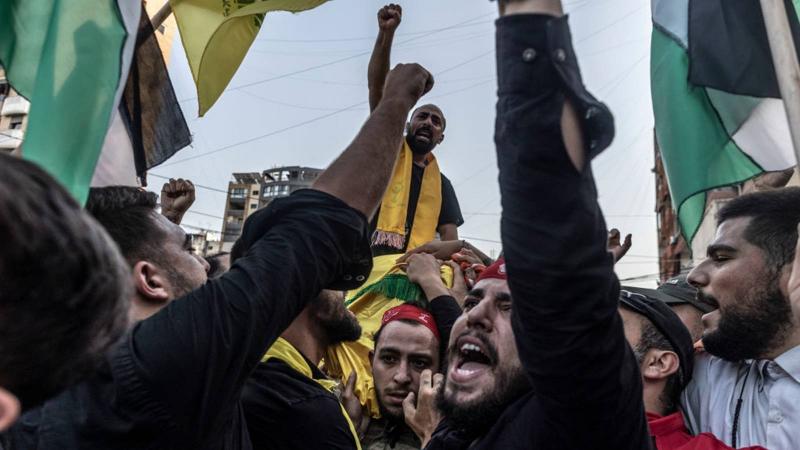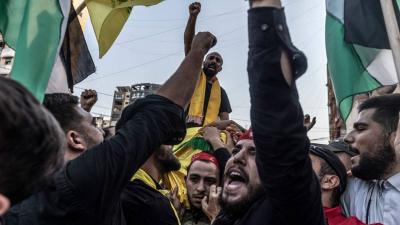Another day has passed in the confrontations between the resistance and Israeli occupation forces on the southern border, marked by an expansion of these confrontations beyond the geographic scope of the established rules of engagement per Resolution 1701. Israel has initiated artillery and aerial bombardments deep into some southern areas, receiving missile responses in the northern part of the occupied Palestinian territories. This has raised expectations that this conflict zone may widen further in the coming days, especially if the destructive Israeli bombardment of Gaza and its failed incursion attempts continue.
While some indicators of de-escalation have emerged, noted by sources close to the Prime Minister who visited Qatar yesterday, it was officially announced last night that the Secretary-General of Hezbollah, Sayyed Hassan Nasrallah, will speak next Friday afternoon during a commemorative event for the martyrs who fell on the road to Jerusalem in defense of Gaza, the Palestinian people, and sacred sites.
Informed sources told "Al-Jumhouria" that the announcement regarding Nasrallah's appearance, his first since the "Al-Aqsa Flood" operation, has addressed questions both domestically and internationally regarding the reasons for his silence, which has concerned Israel and its allies, as well as those interested in the Israeli war on Gaza and the confrontations between Hezbollah and Israel on the southern border. The sources expect further developments in the days leading up to this appearance, particularly in southern Lebanon and Gaza, amid the "change — retreat" in the positions of the United States and its allies supporting Israel in light of Israel's failure to invade Gaza to "crush" Hamas as it had threatened, and the growing global outrage over its crimes that have resulted in the deaths of nearly 8,000 Gazans, most of whom are women and children.
These sources confirmed that what Nasrallah will declare will be significant for both the current and upcoming phases, considering their domestic, regional, and international aspects. Meanwhile, Prime Minister Najib Mikati embarked on an Arab tour yesterday, starting with a quick visit to Qatar, from which he returned around 5 PM. Sources close to him informed "Al-Jumhouria" that this visit is part of a plan to visit several Arab countries successively to follow up on efforts and pressures aimed at halting the Israeli war on the Gaza Strip and preventing its expansion into Lebanon. It remains unknown which country will be his next stop, as he decides each visit based on the circumstances of each country and the commitments of its officials.
"Al-Jumhouria" reported that Oman is likely the second stop after Qatar in Mikati's tour. The sources indicated that there are signs of de-escalation in southern Lebanon issued by the U.S. administration and Iran, confirming the continuation of confrontations between the resistance and Israeli occupation forces in southern border frontline sites without extending further. The sources attributed the Western indifference toward the violent Israeli bombardment of Gaza to "a temporary attempt to appease Israel to restore its shattered prestige after the 'Al-Aqsa Flood' operation carried out by Hamas on October 7."
Mikati had met in Qatar with Emir Sheikh Tamim bin Hamad Al Thani, the Prime Minister, and Minister of Foreign Affairs Sheikh Mohammed bin Abdulrahman Al Thani. Discussions covered the latest developments in the Palestinian territories, their repercussions on Lebanon and the region, in addition to the bilateral relations between Lebanon and Qatar and ways to strengthen and develop them given Qatar's varied support for the Lebanese army and security forces. Following this, Mikati held a meeting with his Qatari counterpart in the presence of the Chargé d'Affaires of the Lebanese Embassy in Qatar, Ambassador Farah Berri, before they held a private session together.




